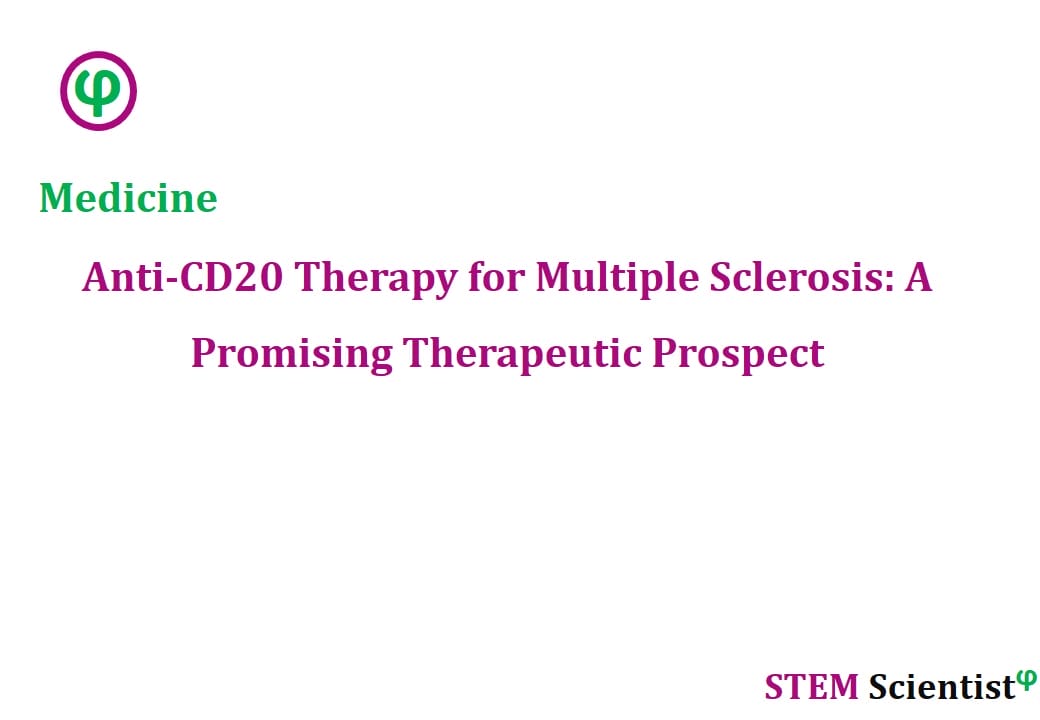
The following study was conducted by Scientists from University of California, San Francisco; Johns Hopkins School of Medicine, Baltimore, USA. Study is published in Proceedings of the National Academy of Sciences Journal as detailed below.
Proceedings of the National Academy of Sciences; 116(51): 25800-25807
Anti-CD20 Therapy Depletes Activated Myelin-Specific CD8+ T cells in Multiple Sclerosis
Significance
Multiple sclerosis (MS) is an inflammatory demyelinating disease of the central nervous system. CD8+ T cells have been strongly implicated in MS pathogenesis, but it is unclear whether myelin is a CD8+ T cell autoantigenic target in MS. This study demonstrated that while myelin-specific CD8+ T cells are present at similar frequencies in untreated MS patients and healthy subjects, the proportion of memory and CD20-expressing myelin-specific CD8+ T cells was increased in MS patients, suggesting prior antigen encounter. This activated phenotype was reversible as the memory and CD20-expressing populations of certain myelin-specific CD8+ T cells were reduced following anti-CD20 treatment.
Abstract
CD8+ T cells are believed to play an important role in multiple sclerosis (MS), yet their role in MS pathogenesis remains poorly defined. Although myelin proteins are considered potential autoantigenic targets, prior studies of myelin-reactive CD8+ T cells in MS have relied on in vitro stimulation, thereby limiting accurate measurement of their ex vivo precursor frequencies and phenotypes. Peptide:MHC I tetramers were used to identify and validate 5 myelin CD8+ T cell epitopes, including 2 newly described determinants in humans. The validated tetramers were used to measure the ex vivo precursor frequencies and phenotypes of myelin-specific CD8+ T cells in the peripheral blood of untreated MS patients and HLA allele-matched healthy controls. In parallel, CD8+ T cell responses against immunodominant influenza epitopes were also measured. There were no differences in ex vivo frequencies of tetramer-positive myelin-specific CD8+ T cells between MS patients and control subjects. An increased proportion of myelin-specific CD8+ T cells in MS patients exhibited a memory phenotype and expressed CD20 compared to control subjects, while there were no phenotypic differences observed among influenza-specific CD8+ T cells. Longitudinal assessments were also measured in a subset of MS patients subsequently treated with anti-CD20 monoclonal antibody therapy. The proportion of memory and CD20+ CD8+ T cells specific for certain myelin but not influenza epitopes was significantly reduced following anti-CD20 treatment. This study, representing a characterization of unmanipulated myelin-reactive CD8+ T cells in MS, indicates these cells may be attractive targets in MS therapy.
Source:
Proceedings of the National Academy of Sciences
URL: https://www.pnas.org/content/116/51/25800
Citation:
Sabatino, J. J., M. R. Wilson, et al. (2019). “Anti-CD20 therapy depletes activated myelin-specific CD8+ T cells in multiple sclerosis.” Proceedings of the National Academy of Sciences 116(51): 25800-25807.


